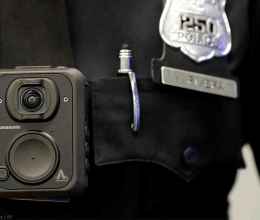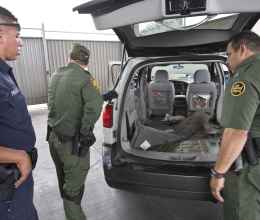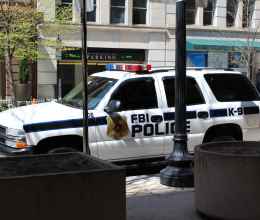“Apartheid was legal. The Holocaust was legal. Slavery was legal. Colonialism was legal. Legality is a matter of power, not justice.” —Jose Antonio Vargas
Ten state attorneys general threaten to file a lawsuit by September 5 to seek the termination of the Deferred Action for Childhood Arrivals Program, leaving about 800,000 immigrant youth at risk of immediate deportation.
They say the law is the law.
But in their version of the law, is there justice or fairness?
I grew up a mixed-race child in a conservative Japanese town where racial discrimination was a near daily fact of life. My parents wanted to move to the United States where they believed all children were treated as equals, but they were told by lawyers that if they applied for citizenship it would be a 20-year wait. And could still fail.
Not able to see their child suffer discrimination any longer, they decided it was worth it to come to the U.S. even if they had to live undocumented without work permits, driver’s licenses or social security numbers. In 2004, they bought for the three of us one-way tickets to California.
Twelve years later, I concluded my freshman year at Harvard University. Meanwhile, my parents lived in a rusty garage in Los Angeles and worked at an elderly care facility for $6 an hour under the table. I saw my mom weep as her manipulative employer unapologetically denied her paycheck for two consecutive months. My father helplessly clenched his sunbaked hands — the same hands that had dragged groceries in a makeshift cart aboard the Metro 233 bus to avoid deportation for driving without a license.
Many nights, my parents glared at the TV screen as a rich presidential candidate wearing a red hat rose to power. Their remaining hopes of immigration reform became eviscerated as Trump chanted: “job stealer.”
My parents retuned to Japan. As a Dreamer kid covered by DACA, I stayed.
My friend Ivan is also a Dreamer. When he was nine, he and his mom fled north to the U.S. to escape cartel violence. Here, they had no immediate family or employment opportunities. But they could survive.
We began our friendship in high school freshmen art class. He was a defensive safety on our football team and worked at a local cellphone store.
A few months ago, Ivan was charged with robbery. The outlook is grim — he can’t afford a good lawyer. If convicted, he will not only go to jail, but — much worse — he’ll have his DACA revoked and be forced back to the violence he had desperately escaped.
The government will celebrate another deportation of a “felon.”
So, please tell me that the law is the law.
And I will respond with facts of immigrants starting businesses, growing the economy, and committing less crime than native-born people. Then I will show you that undocumented immigrants contribute $11 billion in taxes and $13 billion to Social Security.
I will illustrate how generations of now-“legal” ancestors passed through U.S. immigration systems so different from today. Prior to the 20th century, strict national immigration law was nonexistent and Ellis Island merely required health and sanity for entry.
But still, I will bond with you over how liberating it must have felt for your Irish, German, Polish or Italian ancestors to travel endless seas to find refuge in the poem inscribed on the Statue of Liberty: “Give me your tired, your poor, your huddled masses yearning to breathe free.”
I will remind you that America started with the simple idea of protecting a fundamental human liberty — the pursuit of happiness.
In doing so, I will show you that even “job stealers” like my parents and “felons” like my friend deserve to stay here just as much as my fellow undocumented classmates.
I will tell you that we work, study, and live here.
Yet still, there are those who will tell me, “the law is the law.”
But the law is not justice.
Daishi Miguel Tanaka was a communications and media advocacy intern with the ACLU of Southern California.


